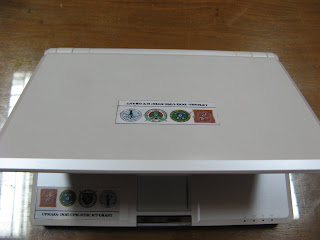

 The National Telehealth Center, through its Field Operations Coordinator Dr. HR Aujero, attended an online conference sponsored by the Emerging Infections Network (EINet). This symposium was hosted by the Advanced Science and Technology Institute (ASTI) at their facility in UP-Diliman where necessary equipment allows real time conferencing among numerous participants. Attended by 17 APEC economies the 2008 Virtual Symposium Pandemic Influenza Preparedness: Partnerships and Continuity Planning for Critical Systems seeks to describe how private and public sectors in the APEC region can cooperate and work effectively to prepare for and respond to pandemic influenza. This videoconference promotes regional information sharing and collaboration to enhance preparedness against pandemic influenza. In order to improve preparedness regionally, it is vital to understand how each economy in the region is undertaking preparedness. Specifically, EINet's proposed aims are to:
The National Telehealth Center, through its Field Operations Coordinator Dr. HR Aujero, attended an online conference sponsored by the Emerging Infections Network (EINet). This symposium was hosted by the Advanced Science and Technology Institute (ASTI) at their facility in UP-Diliman where necessary equipment allows real time conferencing among numerous participants. Attended by 17 APEC economies the 2008 Virtual Symposium Pandemic Influenza Preparedness: Partnerships and Continuity Planning for Critical Systems seeks to describe how private and public sectors in the APEC region can cooperate and work effectively to prepare for and respond to pandemic influenza. This videoconference promotes regional information sharing and collaboration to enhance preparedness against pandemic influenza. In order to improve preparedness regionally, it is vital to understand how each economy in the region is undertaking preparedness. Specifically, EINet's proposed aims are to: 1. Bring together economies in a dynamic, real-time discussion on preparedness through the collaboration of the health and the business/trade sectors, with a focus on critical systems continuity.
2. Share specific examples of current practices, e.g. scenario exercises, communication drills and policy evaluation.
3. Use innovative technologies (e.g. Access Grid) for real-time, virtual interchange, enhancing their utility for future collaboration and response in time of a pandemic.
2. Share specific examples of current practices, e.g. scenario exercises, communication drills and policy evaluation.
3. Use innovative technologies (e.g. Access Grid) for real-time, virtual interchange, enhancing their utility for future collaboration and response in time of a pandemic.




















